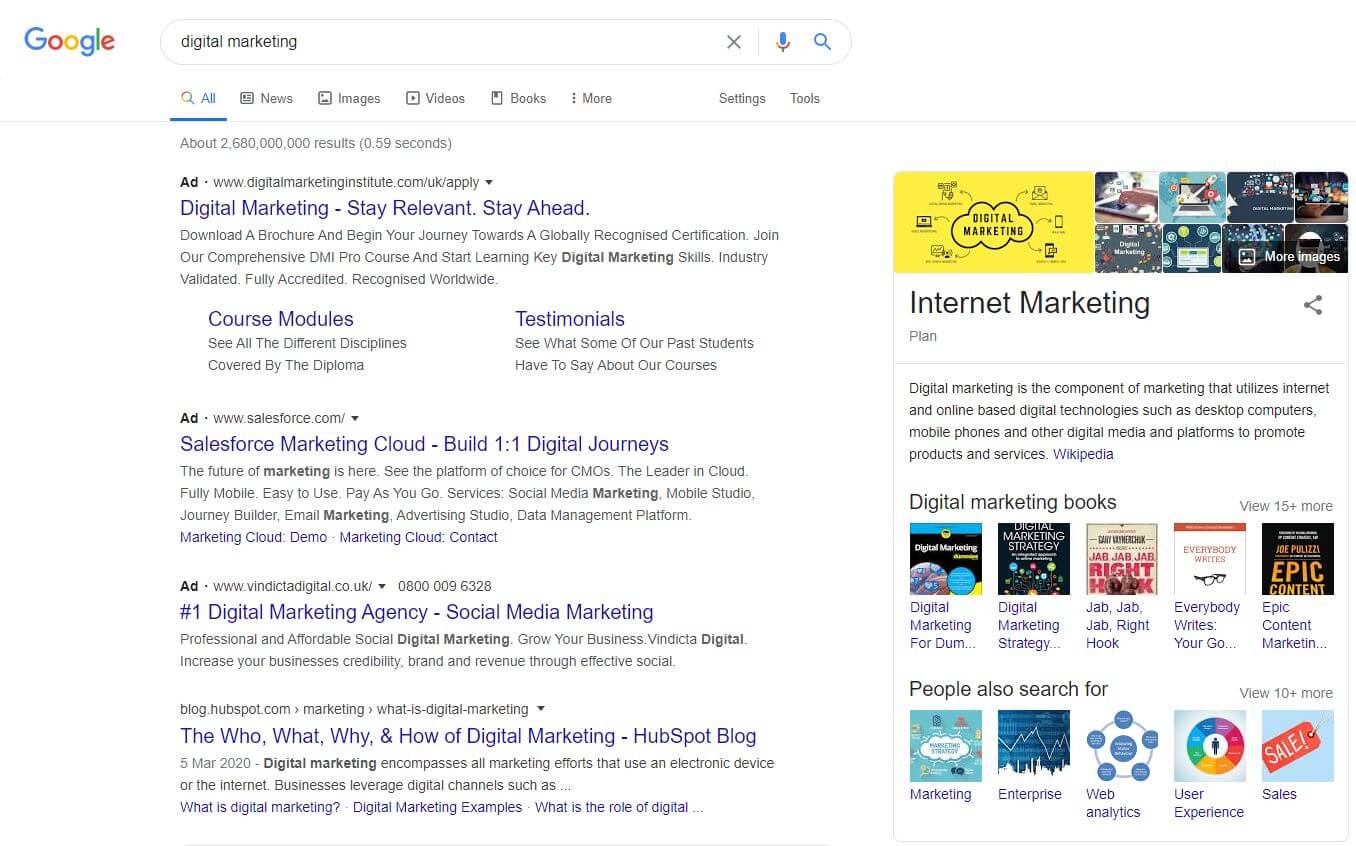There are many lengthy guides out there about how to optimise your business for local SEO – this is not one of those. Chances are if you’re reading up on how to do it, you probably don’t have all the time in the world to spend on it, let alone read about it.
In this quick guide, we’re aiming to give you the basic knowledge you need to get your local business visible in search results.
What is local SEO and why do I need it?

Local SEO refers to a number of practices that help businesses who primarily serve a specific area to show up in search results for people in that area. One of the most common Google autocompletes for products and services is “near me” so by having a local SEO strategy you can show up in these results for your most relevant customers.
Create a Google My Business listing
For local businesses, Google determines which business gets recommended first based on a number of factors, including standard SEO ranking factors like relevancy and authority, but the main difference here is that it also takes into account your proximity to the user.
This is where having your business on Google Maps becomes a huge advantage – you can add your business address through Google My Business and the search engine will use this information to determine how close you are to the users searching for your types of businesses.
When there is location intent in the search – e.g. a “plumber near me” or “plumber in London” style query – Google will often display a local pack using the information from your Google My Business listing. It will display your location alongside other relevant information like opening times and reviews so you need to make sure this information is always up to date.
Local links & citations
As we’ve mentioned, Google still takes authority into account when it comes to local SEO however it is measured slightly differently to standard SEO. Whereas with standard SEO you can achieve high authority by having links from websites that talk about similar topics, when it comes to local SEO you achieve high authority by having links from other local businesses in your area. These can be from local newspapers, local charities and other businesses you have collaborated with. Again, this shows Google that you genuinely operate in that area while also seeing the links from local businesses as a mini endorsement of your brand.
While citations don’t have much weight in standard SEO strategies nowadays, there is still some value to be had for local SEO activities. A citation is anywhere your business information (name, address, phone number, website URL) appears online e.g. in a directory of local businesses. Not only can you get website traffic from visitors using these sites to find local providers, the more your business information appears online (and matches!), the more Google will believe that you are a real business in that location.
As promised, this is a quick guide to local SEO to get your business showing up online. Once you’ve completed these activities you will need to analyse the data to see if there is anything you need to change e.g. how you incorporate your location on your website and then you can move onto some more advanced digital marketing techniques.
Local SEO – FAQs
What is local SEO and why does it matter?
Local SEO helps your business show up in searches made by people nearby. Think things like “coffee shop near me”. It’s essential if you want to attract local customers online.
How can I get my business on Google Maps?
Create a Google Business Profile (used to be Google My Business), fill it out completely, and verify your listing.
Be sure to:
– Add photos, services, and opening hours
– Answer frequently asked questions
– Respond to customer reviews, even if they’re negative
– Keep your profile updated!
What’s the best way to improve local search visibility?
Focus on optimising your Google Business Profile, collecting reviews, using local keywords, and building local backlinks (like from directories or local news).
Do reviews really affect local SEO?
Yes! Google looks at the number and quality of your reviews when it ranks local businesses. Responding to reviews (good and bad) also shows you’re active and trustworthy.
What are local keywords?
Local keywords are search terms that include a specific location, like “hairdressers in Leeds” or “Manchester digital agency”.
They help connect your business with people in your area who are looking for your services.
Should I use local keywords on my website?
Absolutely. Include your city, region or service area in headings, titles, and content where it feels natural. This helps search engines match you to local searches.
Can I rank in nearby areas too?
It’s possible, especially if you create pages tailored to those areas. Mention specific locations, local landmarks or services offered in that area to boost your relevance.





